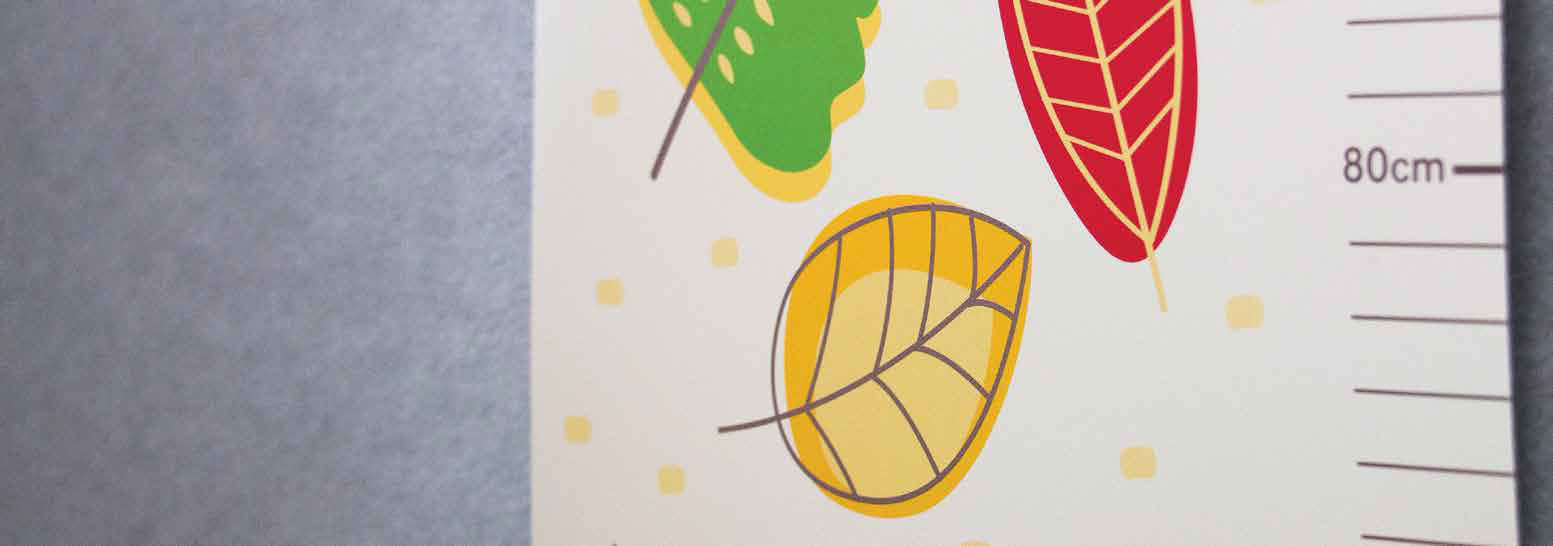Height chart
Reading together
Reading takes many forms; it’s also about recognising numbers and symbols and can be useful in everyday life.

Activity
Ask adults to measure children’s height then make a graph using streamers, wool or ribbon to show how tall each child is. Record each child’s name and height on the chart.
What you'll need
- Height chart or measuring tape
- Ruler
- Marking pens
- Streamers
- Large sheet of paper
- Sticky tape
- Blu Tack
Words to use
- Measure, mark, record, read, write
- Centimetre, metre
- Height, head
- Tape, ruler
- Chart, graph, plot, axis
- Tall, taller, tallest, big, bigger, biggest, small, smaller, smallest, long/short
- Growing, older, years, months, ages, birthdays
- Compare, predict, estimate
- Streamer, wool, string, ribbon
Learning through play
Ways to develop numeracy through play
- Recording how tall you are is about measurement.
- Make a graph to record the playgroup children’s height.
- Compare who is the tallest/smallest child.
- Measure adults and compared to the child – who is taller/smaller.
- Ask a child to predict – who will be taller?
- Ask a child to estimate how tall they think they are.
- Use other units of measurement –how many metres long is the fence or how many hands tall is the cupboard?
- With a streamer, ribbon or string, compare other items in the room to the child’s height.
Ways to develop literacy through play
- Talk about centimetres and metres.
- Write the child’s name next to their measurement.
- Discuss height comparisons.
- Read Titch by Pat Hutchins or Jasper’s Beanstalk by Nick Butterworth.
- Remember when...
- you were 2 and you couldn’t reach the door handle.
Extensions and variations to this activity
- Make a TALL book.
- Build with blocks – ask the children to make a tower as tall, taller or smaller than themselves.
- Link paper chains together – compare to the children’s height or other items in the room.
- Thread straws, pasta, cotton reels or large beads onto plastic tubing the length of the child. Tie knots to secure – display by hanging on a stick or a piece of dowel.
- Draw around the child’s body with chalk – measure the length – compare with the height chart – is it the same or different?
- Compare shadow lengths at different times of the day.
- Measure different objects inside and outside the playgroup.
- Grow a climbing plant such as a bean or pea plant.
Supporting parent engagement in play
Play prompts:
- Measure your child and plot their height onto our graph.
- Don’t forget to write their name and height.
- Compare their height to other items in the room.
- Use words such as tall, taller, tallest, big, bigger, biggest, small, smaller, smallest.
Parents or carers can:
- Comment on what their children are doing (say what they see).
- Talk in their home language.
- Use literacy and numeracy words (see words to use section above).
- Measure their child and record their height.
- Help their child compare, estimate and predict.
You can help families by:
- Modelling what you want them to do.
- Talking to them about the focus of the activity and what children might be learning.
- Writing up words that go with the activity.
- Making suggestions on what families can do at home.
Related Great Start activities
Great Start activities are for parents and carers to do with their children.


